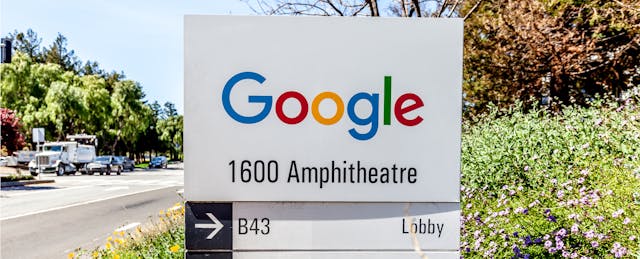Per a recent announcement, Google is entering the college search space. In a blog post, the tech company announced a new search feature where students can type the name of 4-year U.S. colleges and universities and get information regarding “admissions, cost, student life and more.”
In an email, Google product manager Jacob Schonberg tells EdSurge that this move builds on Google’s existing work around education information. Specifically, he references the federal government’s College Scorecard, which Google’s technology helped support.
Schonberg also points to the job search feature his company announced last year, designed to aggregate and display job postings on the first page of search results. “We began to look at other ways we could have further impact and help connect users to new opportunities,” explains Schonberg of Google’s decision to expand to college search. “We identified information about education as a critical part of the long term path to success.”
Schonberg writes that the data and information Google is using is being “predominantly sourced from the most current data available from the U.S. Department of Education’s College Scorecard and Integrated Postsecondary Education Data System.” Information will be updated as new data is available.
“Other content, such as photos of the school, are surfaced from Search and may change over time, as Search is dynamic,” he writes.
For the project, Google worked with education researchers, non-profit organizations, high school counselors and admissions professionals to help inform its “approach,” Schonberg adds. Currently it’s limited to 4-year institutions within the United States.
“We hope to partner more closely with the education ecosystem to better organize and provide information for all types of students interested in furthering their education,” he writes.
Sean Gallagher, the founder and executive director of Northeastern University’s Center for the future of Higher Education and Talent Strategy, calls the announcement “notable” and “something to watch,” but doesn’t think it will overhaul the college search process.
On the surface, the announcement seems to fit the pattern of major tech companies taking more steps in education—in a way that could potentially disrupt the various sources that currently provide such information, like the search tools from The College Board and Petersons.
To that end, Gallagher doesn’t think Google is necessarily trying to compete with other companies. And neither, for the record, does Google, although that may happen anyway if its own search results end up siphoning traffic from other sites. According to Schonberg, picking a college “is an important life decision that involves extensive research, and we view this new search experience as a tool with which students can begin their search and understand the opportunities available to them. We encourage prospective students to also check other sources for more detailed information and first-person discussions about colleges.”
Google’s Silicon Valley neighbor LinkedIn is doing something a little different, Gallagher says. There, users can view institutional pages for colleges and universities to get insights such as where those graduates work. At the same time those schools are leveraged as potential advertisers to reach both job-seekers and prospective students.
However, Gallagher makes a distinction between what LinkedIn is doing, and what Google is doing. Google, he says, is offering curated results, which will reflect the limitations of the data sources it’s using.
“[Google is] a major tech company that’s beginning to provide more information with data on prospective college options, but I believe LinkedIn and some other firms have more of a business around it,” using proprietary data and information, Gallagher says.
Gallagher thinks the college search feature is “pretty basic,” and says in many cases, students could have gotten the same data and information “within one or two clicks from a prior Google search.” But he supposes that the change is that instead of doing that, the information is “front and center, at the top of the results.”
It may also lead to new ad revenue. Many colleges with significant online programs already spend millions each year to buy ads on Google and other online platforms. Gallagher speculates whether, in the future, this functionality could mean Google will offer new advertising options for colleges.
“Again this is speculative, but looking to the future—will colleges that provide extra data to Google or pay some sort of fee get a more robust profile?”


